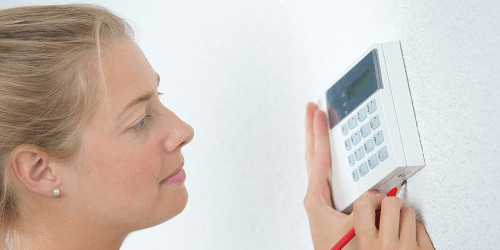
10.2.20 – SSI – Ken Kirschenbaum
You may assume that DIY security companies are more likely to face liability losses. Legal expert Ken Kirschenbaum explains why that’s not true.
Considering do-it-yourself (DIY) security companies have been around for years, statistically speaking there should have been liability losses by now. Have there been claims against DIY alarm companies where the system has been professionally monitored?
What about any against alarm companies where the system is self-monitored (customer elects on contract to not have signals forwarded to a monitoring center but instead sent directly to them via text and email)? That model has also been referred to as monitor it yourself, or MIY. Have there been any settlements or judgments?
If not, how might courts view such cases in comparison to professionally installed systems? How do insurance carriers assess and formulate premiums for DIY companies? Not all DIY companies are the same.
Some actually do professional installations as well as sell DIY systems (sometimes marketing as variations such as do it with me, DIWM, do it together, DIT, etc.). Others have a nationwide model, sell DIY products, don’t install or help with installation and provide platforms for self or professional monitoring.
Except for alarm companies run by those with low double-digit IQs (or high-roller gamblers or those using other people’s money), the nationwide DIY companies are doing business with proper subscriber contracts. Examples of such contracts can be found at alarmcontracts.com (and from other law firms who often copy most of the form in violation of trademark and copyright law).
A customer who decides to use a DIY system, whether self or professionally monitored, is going to run into the same brick wall other alarm customers face when they have signed Standard Form Agreements. You can’t buy a four-cylinder economy car and complain when it won’t do zero to 60 mph in two seconds or outrun the smokeys.
You also can’t install — on your own or with assistance through the telephone — an alarm system and expect the alarm company to be responsible. You also can’t have a really expensive alarm system profession ally installed and expect the alarm company to be liable; it’s just not how the industry works. So why pay more if the alarm company isn’t liable anyway?
Do you know the answer yet? It’s because alarm customers aren’t supposed to be installing alarm systems and paying for alarm services with the expectation that the alarm company will be liable if there is a loss that the alarm system was supposed to detect and guard against.
The alarm system is one layer of protection, like a dog, like more lighting, like neighborhood patrols, like locked doors, like lawn signs, like a sprinkler system, like sitting up all night on guard. They are all different layers of protecting your life, your family and your property.
Ultimately, from a monetary perspective, it’s the customer’s insurance that the customer has to rely on for reimbursement of any loss or damage. The proper alarm contracts make that very clear, whether it’s a DIY system or professionally installed. As mentioned at the outset, I am not aware of any lawsuits involving a DIY system or self-monitored system. Drop me a line if you have encountered any such cases.
As far as insurance, I asked Jeff Schultz from J. Krug & Associates to help me out. He advises that the DIY model premium is driven on a rate per $1,000 of revenue. While most carriers covering those on the true alarm company side determine rates based on their alarm tech payroll, as indicated the DIY model is instead based on product revenue.
Whereas on the standard alarm company side, underwriters review contracts and business breakdown (CCTV vs. burg vs. fire, etc.), for DIY firms they perform a heavy analysis of precisely the type of systems those companies will be selling before determining the rate they are comfortable offering.
